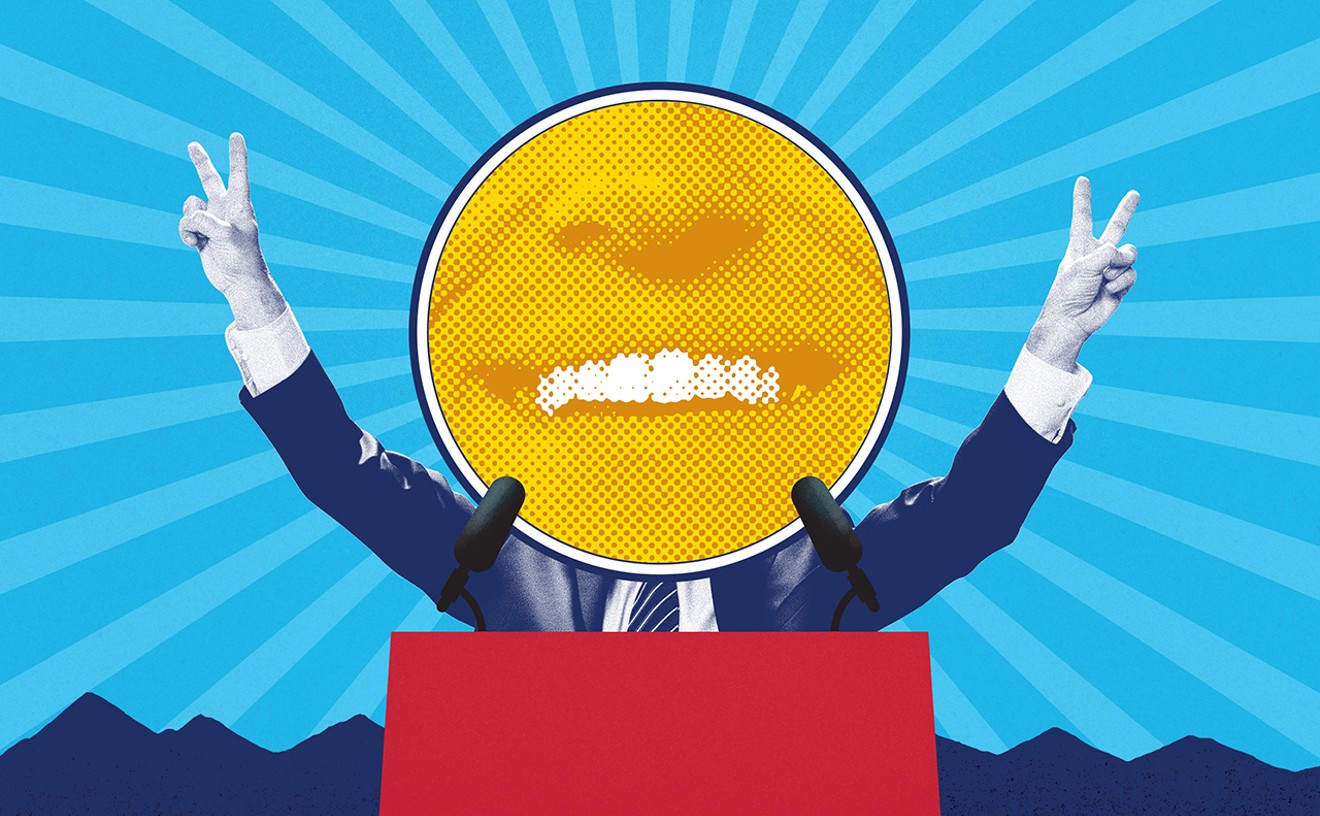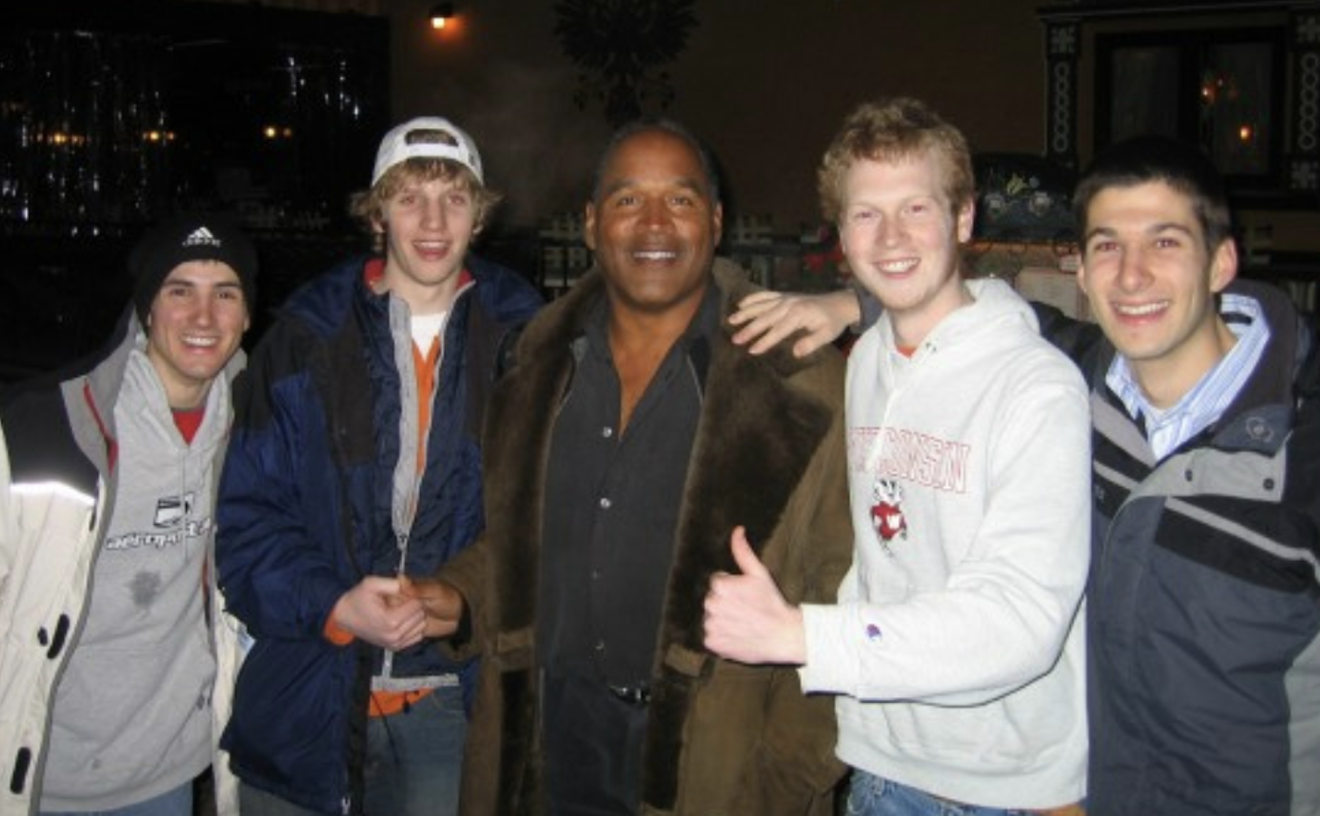The NPR piece focuses on Washington. Reporter Chana Joffe-Walt, of the outlet's Planet Money team, chats with a banker who says he won't take medical marijuana operations as clients for fear of running afoul of the federal government, which insures accounts for financial institutions across the U.S. and continues to regard weed as illegal no matter what voters in two of the fifty states want.
That's followed by a conversation with Seattle MMJ center owner John Davis, who teaches a class in how to deal with such restrictions. But while he has advice about how to operate on an entirely cash basis, he admits that he obtained a bank account by simply not telling officers at the one he uses how he makes his money.
This is precisely the conundrum Wanda James found herself in, as she explained to us in an October post about the closure of her edibles business, Simply Pure. "You can't run a business without a bank account, but the only way to get a bank account now is to lie," she said. "And that just doesn't make sense to me. We are not criminals. So why should we have to lie about a business that's registered with the Secretary of State?"When faced with operating in the light of day or covering up, James and husband/business partner Scott Durrah made a different choice than did Davis. "We'd been with our bank for numerous years for all of our businesses," she noted. "But then we got a letter stating that they were closing our account on July 17. We went back and forth with all the different things happening, but in the end, we realized the only way to get a bank account now is to lie. Just about everybody has one, but the only way they can do it is to put it under a different business category, like 'wellness center' or 'massage center' or whatever. And I just couldn't do that."
Hence, James and Durrah pulled the plug on Simply Pure, at least for now, in order to concentrate on a new restaurant project. The move "is a political statement," she stressed. "As an industry, we employ thousands of people and bring the state millions in taxes and fees. We are a legal business. So why do I have to lie to have a bank account? You can't even pay your taxes without one. Taxes are supposed to be paid electronically through your bank account...."
Continue to read more about marijuana and banking, as well as to hear the NPR report. Not that James has washed her hands of the medical marijuana industry. "We're working right now with Jared Polis, Diana DeGette and Ed Perlmutter," she revealed. "All of them have signed on to the banking bill in Congress. Right now, the government and the banks are operating under a 1980s law that was designed to stop cocaine dealers from having bank accounts, and to the best of my knowledge, Scarface isn't on the Secretary of State's website. We have a business here, so it shouldn't fall under that law."The same trio of legislators is also behind a bill that would exempt Colorado from federal law in light of Amendment 64's passage.
On top of a legislative fix at the federal level, other theories about how to solve the banking problem are being floated locally. For instance, attorney Rob Corry thinks banks run by Tribal Nations could take on such businesses under sovereignty provisions.
Meanwhile, uncertainty continues to rule. Governor John Hickenlooper stressed the urgent need for answers in regard to federal marijuana policy in Colorado during a phone conversation with Attorney General Eric Holder last week. But thus far, no announcements have been made about how much leeway, if any, the feds will allow Colorado and Washington when it comes to their individual marijuana measures. And even if the Obama administration decides to look the other way in regard to Amendment 64's retail provisions, that's no guarantee a banking loophole will be created for marijuana businesses.
Listen to the NPR report here.
More from our Marijuana archive: "Marijuana: Wanda James on closure of edibles business, MMJ banking, Obama and more."











